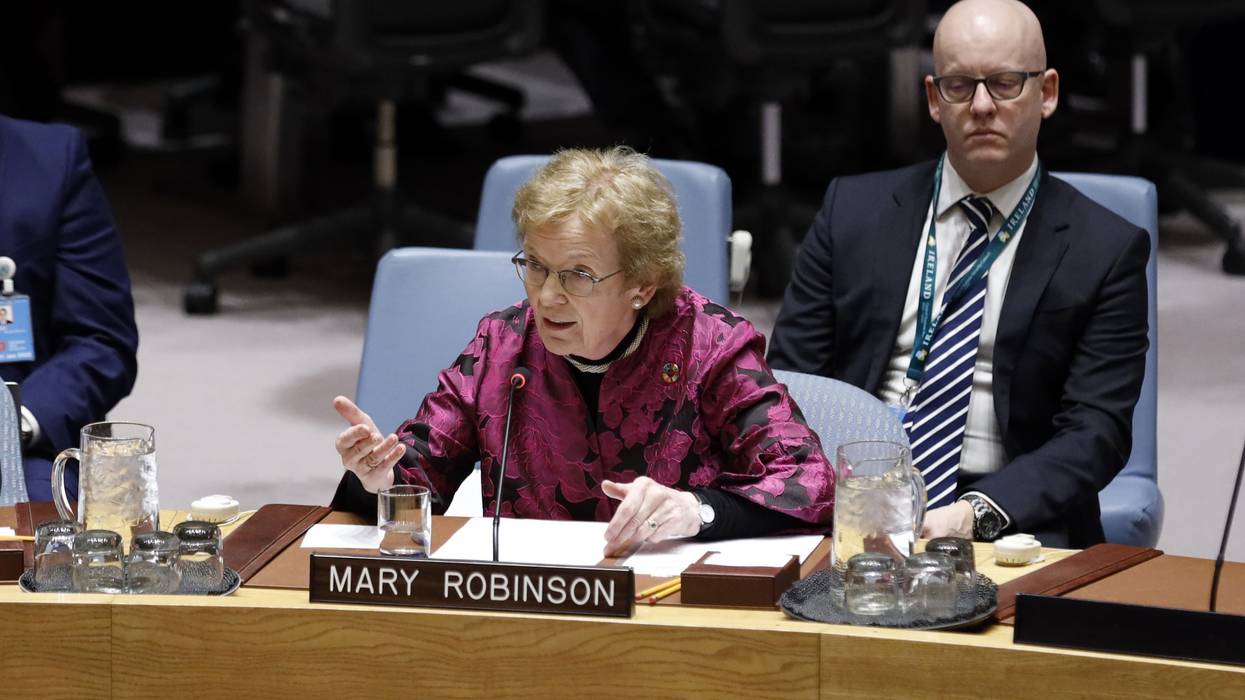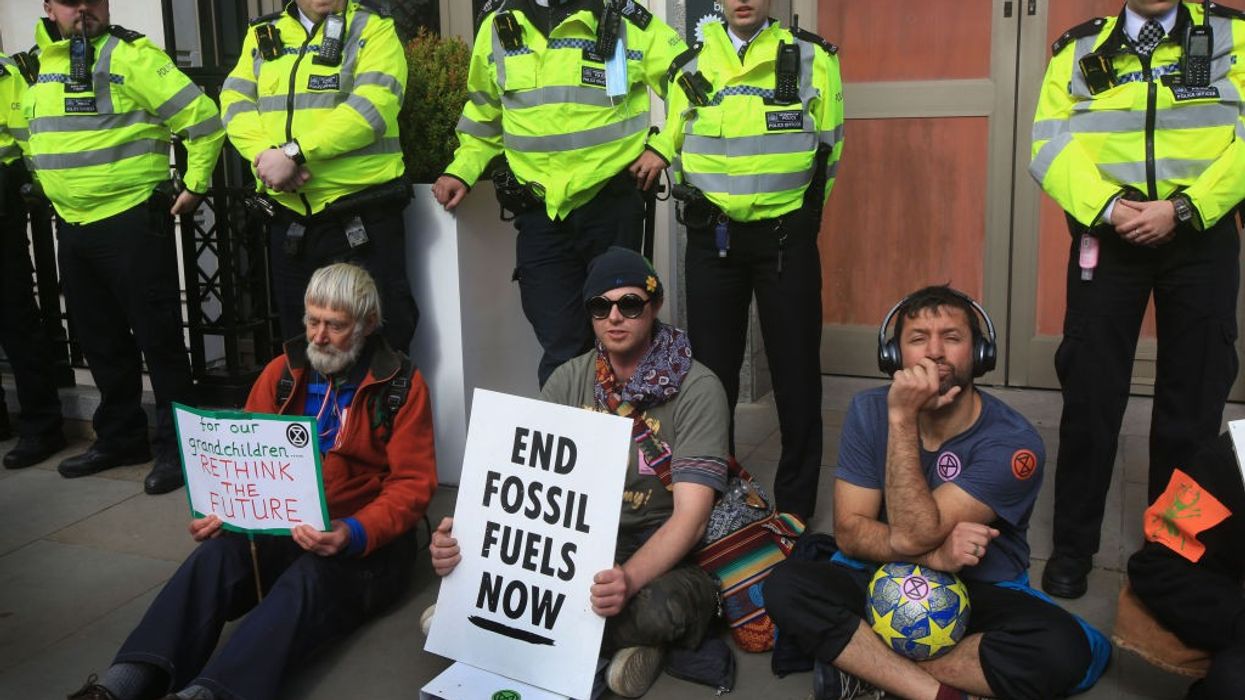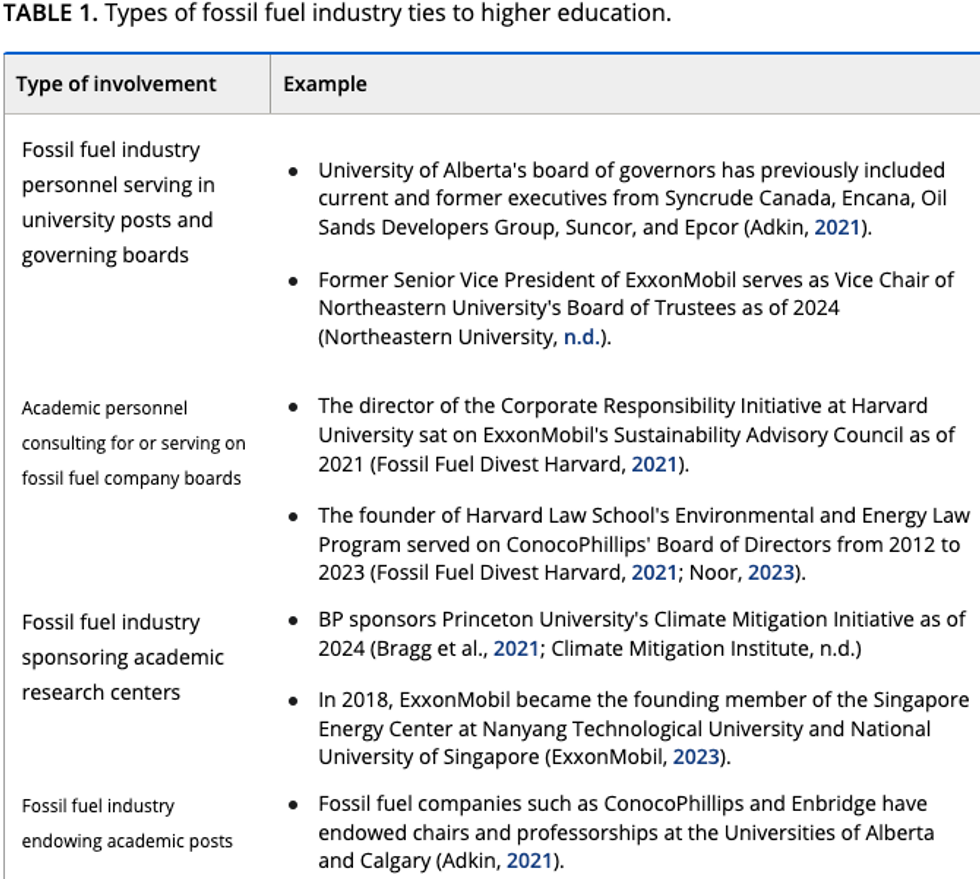Former UN Human Rights Head: EU Must Step Up on Climate Because US Is Being 'Stupidly' Led
The interview with Mary Robinson comes as the Trump administration seeks to undercut climate research and congressional Republicans target portions of the 2022 Inflation Reduction Act.
Former United Nations High Commissioner for Human Rights Mary Robinson is urging the European Union to step up and lead the way on combating the climate emergency in the face of U.S. President Donald Trump's efforts to dismantle the U.S. response to the crisis. Her remarks come as congressional Republicans are moving ahead with a plan to scale back Democrats' signature climate law passed in 2022.
Speaking on a Thursday episode of the podcast "Radio Schuman" from Euronews, Robinson said that she is "hoping that there will be a sense that actually the E.U. now has an opportunity, because the United States is being badly led on climate, actually stupidly led on climate."
Robinson highlighted the fact that Trump signed an executive order on his first day in office withdrawing the United States from the Paris climate agreement, the global treaty aimed at reducing global greenhouse gas emissions, reprising a move from his first term in office. She also noted the Trump administration's efforts to undercut climate research. In April, the Trump administration dismissed hundreds of scientists and experts working on the 6th National Climate Assessment, the government's flagship climate report.
These moves from the U.S. come as the E.U. has tempered its climate ambitions.
When asked whether she's critical of how the E.U. is currently handling climate change, Robinson said that the "E.U. is taking a long time, and we would need to see leadership now, but it's better to get good leadership than rush leadership."
As part of an independent group of global leaders called The Elders, Robinson recently met with E.U. officials where she and her fellow leaders sought to "encourage Europe to step up."
"The E.U. should step up on climate and nature and fulfill the commitments that are necessary," she told the Euronews.
On top of the actions by the Trump administration Robinson highlighted, a GOP megabill currently making its way through Congress includes provisions that target the Inflation Reduction Act (IRA)—a move that green groups have slammed.
The House Energy and Commerce Committee has approved a portion of the bill that would take back billions of dollars in unspent funds from IRA grant programs, and Republicans on the House Ways and Means Committee are pressing ahead with a portion of the bill that repeals clean energy incentives under the IRA.


 These are a few of the examples of Big Oil's links to universities cited in a study in WIREs Climate Change published on September 5, 2024.
These are a few of the examples of Big Oil's links to universities cited in a study in WIREs Climate Change published on September 5, 2024. 